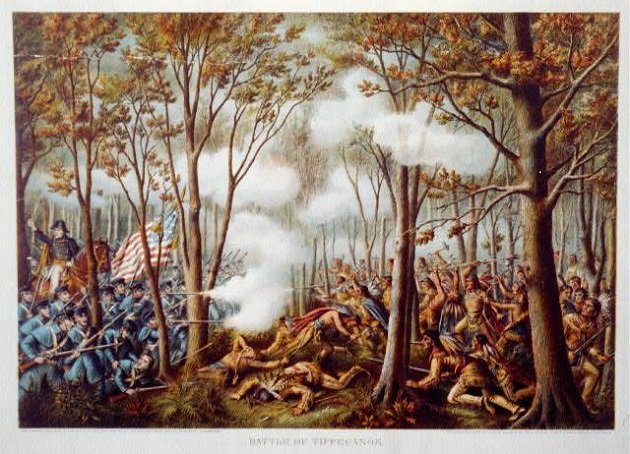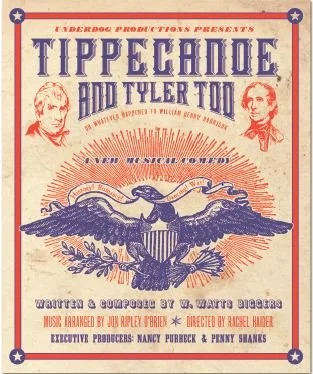Presidents and Military Careers - Part II
The President serves as the Commander-in-Chief of America’s military. However, military experience is not required to serve as President. More than half of our Presidents had military service, and many served during wars.
Military experience and leadership can burnish a politician’s reputation and has resulted in some military veterans winning the Presidency.
In part 1, we covered the Founding Fathers, Presidents from the Revolutionary War period. These were the first five Presidents – Washington through Monroe.
In part 2, we’ll cover the period up to the start of the Civil War. This covers three conflicts:
War of 1812
Native American Wars (various conflicts in different times and places)
Mexican American War (1846 – 1848)
The Presidents in this time period:
John Quincy Adams (1825 – 1829)
Andrew Jackson (1829 – 1837)
Martin Van Buren (1837 – 1841)
William Henry Harrison (1841 – died in office)
John Tyler (1841 – 1845)
James Polk (1845 – 1849)
Zachery Taylor (1849 – 1850 – died in office)
Millard Fillmore (1850 – 1853)
Franklin Pierce (1853 – 1857)
James Buchanan (1857 – 1861)
Abraham Lincoln (1861 – 1865)
John Quincy Adams
No military service.
Andrew Jackson
Andrew Jackson at Battle of New Orleans
Andrew Jackson’s military career spanned several wars. Back in the Revolutionary War, as a 13-year-old, he was captured by the British while assisting the South Carolina militia. When he refused to clean the boots of a British officer, the redcoat cut him with a sword, giving him scars, as well as an intense hatred for the British.
During the War of 1812, Jackson successfully led American forces in several battles against the British and their Native American allies. His career culminated in an overwhelming victory against the British attack on New Orleans in early 1815. This victory made him a national hero. Over the next several years, he participated in several campaigns against Native Americans in Florida, known as the Seminole Wars.
Jackson’s popularity was in large part due to his military career.
Martin Van Buren
No military service.
William Henry Harrison
Before the War of 1812, Harrison became a hero through victorious leadership in battles against Native Americans. During the War of 1812, he won a significant victory by re-capturing Detroit and pushing British forces back into Canada.
He ran for President on a campaign slogan of ‘Tippecanoe and Tyler Too.’ Tippecanoe refers to a victory he won in 1811 against Native Americans near Tippecanoe river in Indiana. (Tyler was his Vice President).
Harrison died after only 31 days in office.
John Tyler
He served in the militia during the War of 1812 but was not involved in any combat.
James Polk
He served in the militia during the 1820s but was uninvolved in combat.
Zachary Taylor
1848 Taylor Campaign Poster
President Taylor had a long and successful military career, from the War of 1812, through the Black Hawk and Seminole Wars with the Native Americans, culminating in leading the United States to victory in the Mexican-American War. His status as a war hero led to the Whig party nominating him for President.
He died in office in 1850.
Milliard Fillmore
No military service.
Franklin Pierce
Pierce believed military service would further his political career. He used his connections to obtain a Brigadier General appointment during the Mexican American War when he was over forty years old. Despite having no military experience, he ended up leading over 2,000 men. His record was undistinguished. He fell off his horse, injuring his leg, and did not participate in the American victories.
Interestingly enough, in the 1852 Presidential race, Pierce defeated General Winfield Scott. Scott was another hero for his leadership in the Mexican-American War.
Pierce (left) / Scott (right)
Pierce fought an alcoholism problem throughout his life. Critics in the 1852 campaign called him the ‘hero of many a well-fought bottle.’
James Buchanan
Buchanan was the last War of 1812 veteran to be elected President. He served as a private in the militia defending Baltimore in 1814. This battle led to the composition of the Star-Spangled Banner.
Abraham Lincoln
Lincoln served three months in the militia during the Black Hawk War (1832). He was not involved in any combat. Lincoln poked fun at his experience. In 1848, while serving in Congress, he said: “By the way Mr. Speaker, did you know that I am a military hero? Yes sir, in the days of the Black Hawk War I fought, bled, …but I had a good many bloody struggles with the mosquitoes, and although I never fainted from the loss of blood, I can truly say I was often very hungry.”
Summary
Of the eleven Presidents in this period, seven served in the military. Three were generals (Jackson, Harrison, and Taylor). The military experience of these three as generals was a major factor in their ascension to the Presidency. For the others, military service, or lack thereof, was not a factor in their electoral success.
In our next entry, we’ll examine Presidents who served in the Civil War.




